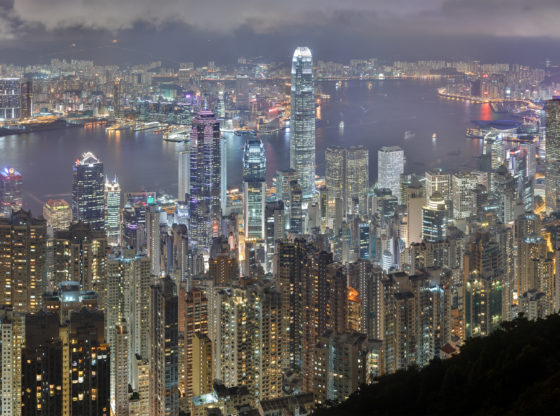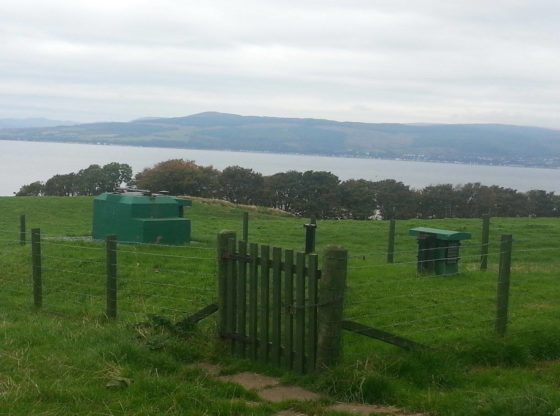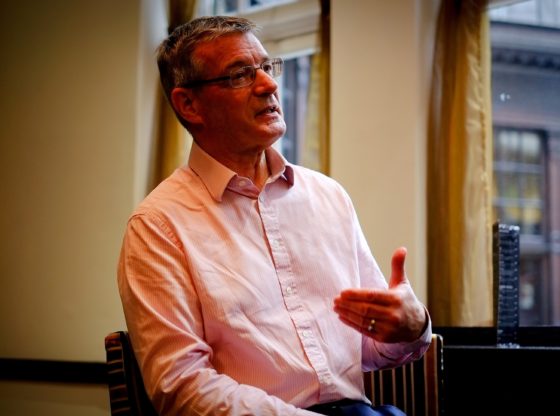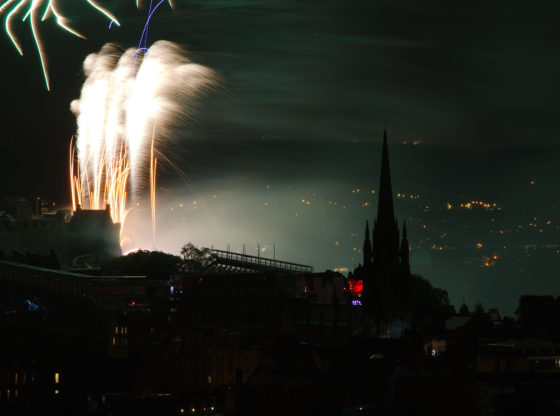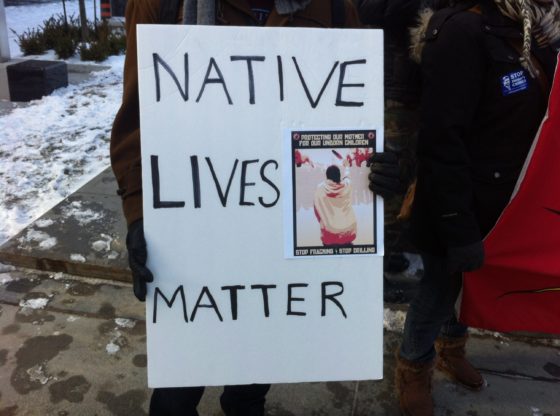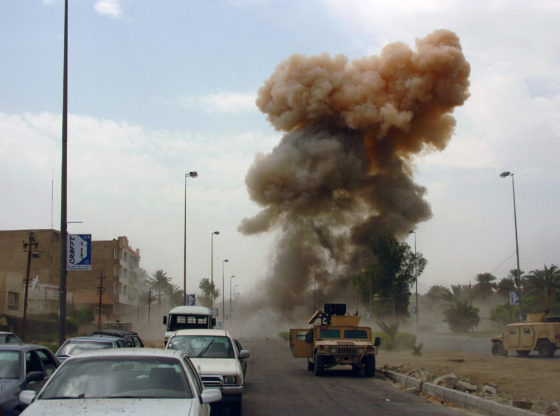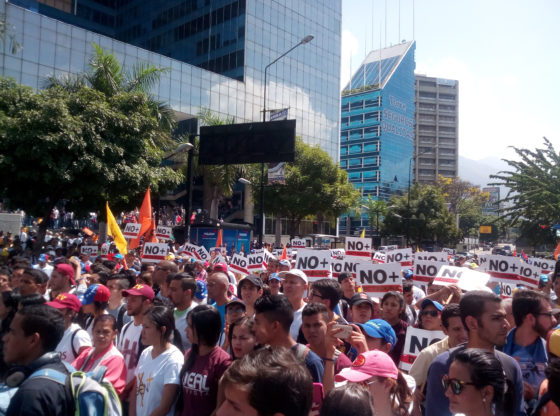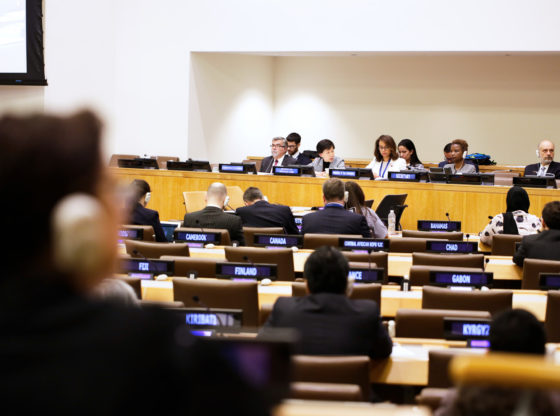Turkey has experienced a challenging few years, culminating in the failed coup of July 2016. President Erdoğan’s harsh response to the coup has raised many troubling questions about Turkey’s future direction. Having lived in Istanbul for several years, Rhiannon J. Davies writes about how the country’s largest city is responding to the changes.
It has been one year since the sight of tanks jolted people from the mundanity of their daily commute. One year since traffic came to a standstill as jets flew low over high-rises, terrifying their inhabitants with window-rattling sonic booms. One year since President Erdoğan called for his people to take to the streets and patriotic civilians laid down their lives to stop a misjudged and poorly executed coup. The attempt was blamed on exiled cleric Fethullah Gülen and was referred to by Erdoğan as a ‘gift from God’.
Retribution was swift - three thousand people were arrested on the first day alone - and far-reaching. Purges into the nation’s civil service, academic institutions, political parties. and media continue to this day. In just twelve months, over fifty-five thousand people have been arrested with more than one hundred and forty thousand dismissed from their positions. Perhaps even more symptomatic of an ill society is the fact that there are one hundred and sixty-six journalists in jail, not the mere two that Erdoğan recently claimed. The emboldened President has used the coup attempt to gain political capital, riding on the crest of its wave right through to this year’s April referendum which saw the country narrowly vote for a constitutional change which grants him more powers. The transformation into his ‘New Turkey’ is underway but just how have these changes affected the country’s greatest city?
CHANGE - AND A LIBERAL EXODUS
Istanbul sprawls across two continents, divided and defined by the Bosphorus strait that has always kept Europe and Asia at arm’s length. In recent years, it has felt as though there has been an invisible hand stitching up the two sides. Giant infrastructure projects have characterised Erdoğan’s time in power and in Istanbul, this has meant a third Bosphorus bridge, a rail tunnel under the Bosphorus, and plans for additional vehicle and pedestrian tunnels. But the question is: when that invisible hand pulls the thread tight, which way will it pull?
It’s not just across the Bosphorus that Istanbul has been changing. The whole city feels like one giant construction site at the moment, with major works going on at some of its biggest tourist attractions. The largest ever renovation project has just begun on the Blue Mosque, and a number of the city’s mosques such as Yeni Cami and Rüstem Pasha are already cladded with scaffolding, shielding their Ottoman structures from view. It is not just the historic religious sites that are getting money sunk into them. There is also the recent completion of Çamlica Mosque - Turkey’s largest - that can hold almost 40,000 devotees for prayer. Positioned on the city’s highest hill, it now dominates the landscape on the city’s Asian side, an overbearing presence and a $66.5 million dollar legacy of Erdoğan’s rule.
The voices of the liberal, well-educated Istanbulites that consider themselves to be part of Europe are being lost. Those that can are leaving the country in their droves.
Meanwhile, in contrast, this spring saw the floating Suada nightclub and restaurant island complex unceremoniously reduced to rubble. This was viewed in some quarters as an attempt to clamp down on the liberal hedonism that, for some, characterises the difference between Istanbul and the rest of Turkey. These may be some of the most visual representations of the impact of Istanbul’s pull to the East, but there are other changes too. The religious conservative half of Turkey which votes for Erdoğan time and again are now enjoying the opportunity to exercise their voice, one that was lost in the secular reinvention of the Ottoman Empire as the modern Republic of Turkey by Ataturk some ninety years previously. The voices of the liberal, well-educated Istanbulites that consider themselves to be part of Europe are being lost. Those that can are leaving the country in their droves.
Explaining his reasons for wanting to leave, Can Usta, a thirty-three year-old designer and web developer from Istanbul, said: “My job is to provide a service based around the approaches and ethics of global and visual culture. However, the culture I see in Turkey is terrifyingly under-developed compared to Europe or the US, and this gap is widening. Last month, for example, the theory of evolution was removed from high school syllabuses, apparently because it makes youngsters “confused”. The religious approach is increasingly dominating because high schools with curriculums based on empirical knowledge are being turned into schools based upon religious teachings. Young people are way more religious now than when I was growing up, and their culture is also controlled by the media too. Turn on the TV and all you see are reality shows, government propaganda, fake news and programmes about traditional Turkish culture. So many of my friends have already left Turkey or, like me, are making plans to leave.”
Skilled, educated young professionals are able to make use of the Ankara agreement to seek work abroad. But for many others, there is no such option. Frustration is rife amongst those unable to see a way out. The vibrant young expat community that had made Istanbul its home is also starting to dissipate. Nina Ludolphi, a thirty-three year-old German journalist married to a Turk, had lived in Istanbul for several years but left in late 2016. She recalls that: “My first visit in 2010 was short and magical. Everyone we met was excited to live in a city that was seemingly the next place to be. This euphoria continued in 2011, but political pressure and a growing rift between religious-conservative citizens and more liberal groups became more and more palpable. Both physical and mental spaces for expression, recreation, and non-commercial activities started disappearing, which was a large part of the discontent that fuelled the Gezi protests. They sparked an almost romantic hope for change in people which was, in return, squashed in a thousand different ways.”
A SHIFTING TOURIST SCENE
The departure of Istanbul’s more liberal residents is not the only change that’s happening to the city’s demographic. For a city that in recent years has regularly topped lists of the world’s best city break destinations, its tourism industry is in a sorry state. Hotel occupancy rates in March of this year stood at just over forty-seven percent. In 2016, there was a twenty-six percent decrease in visitors to the city, with a more than thirty percent fall in European guests, who just happen to make up over half of all tourists.
Meanwhile, last year Turkey experienced an increase in visitors from the Middle East with a rise in the number of tourists coming from Bahrain (twenty-eight percent), Jordan (twenty-five percent), and Saudi Arabia (seventeen percent). Locals, who had invested everything into opening hotels and restaurants when business was booming, are increasingly relying on revenue from Middle Eastern tourists to keep afloat. Arabic script is now a common sight in tourist areas, dry hotels are opening to appeal to the more conservative visitor. The Istanbul crowds that were once abuzz with a multitude of world languages are now taking on a more one-dimensional feel. As the first quarter of 2017 showed, Turkey’s tourism decreased by seventeen percent. Given that the average daily spend of Arab tourists tends to be much higher than many other nations, at $600 per day, this rise in Middle Eastern tourists may be the saving grace of Turkey’s tourism sector.
Locals, who had invested everything into opening hotels and restaurants when business was booming, are increasingly relying on revenue from Middle Eastern tourists to keep afloat. Arabic script is now a common sight in tourist areas, dry hotels are opening to appeal to the more conservative visitor. The Istanbul crowds that were once abuzz with a multitude of world languages are now taking on a more one-dimensional feel.
Beyoğlu was once the beating heart of Istanbul’s nightlife scene, the wide pedestrianised avenue, İstiklal Caddesi, its main artery. Now, with reduced tourist numbers, a depleted young crowd, and fear of terrorism keeping people away from the city’s most crowded locations, there’s an emptiness to the area. It’s still busy, but it’s lost its lively atmosphere. Instead, in search of the city’s best nightlife spots, the young crowds have moved east across the Bosphorus to Kadıköy, a traditionally liberal neighbourhood with a smattering of bars offering a more low-key night out. Since the attack on the Reina nightclub last New Year’s Eve, young party goers prefer to gather at friends’ houses, or sup a quiet beer. A city that, just a few years ago, was brimming with excitement and potential appears now to be overcome by fear, frustration, and rising nationalism.
One of the world’s greatest cities, Istanbul has a long history of cosmopolitanism. The Ottoman Empire absorbed cultures stretching from the Balkans to the Caucuses, from North Africa to the Middle East, so many of those people ended up coming to the city. Even before that, the Byzantine Empire had incorporated a myriad of different peoples. At the beginning of the twentieth century, Italians, French and British all made their mark on the colonial grandeur of old Pera, whose buildings still drip with carved stone opulence. As recently as the mid-20th century, Armenians, Greeks, and Sephardic Jews formed an important fabric of this city, their influence still traceable in neighbourhoods like Kuzguncuk, Balat, and Pangaltı, where synagogues and orthodox churches sit side by side with the city’s mosques. Later came the Kurds, fleeing terror in Turkey’s south-east, and waves of east-west urban migration brought rural villagers from across Anatolia to the city. Most recently, Syrian refugees have been arriving in their thousands. Now they too call Istanbul home.
There may be no more tired cliché in the travel writer’s arsenal than describing Istanbul as a city where ‘east meets west’. But its unique continent-straddling location means that Istanbul has always defied cliché and has become a truly magnificent city. The question now is whether it will be able to resist the pull towards conservativism that risks tearing the country apart.
Rhiannon J Davies lived in Istanbul between 2012-2016. She worked as the Arts Editor for a popular local magazine, and wrote a weekly column for a newspaper until it was taken over by the government. As a freelancer, she has contributed articles to various magazines and online publications, and updated three guidebooks on Istanbul/Turkey. Now based in Scotland, she is currently completing the final stages of an MSc in Media, Communications and International Journalism at the University of Glasgow. She occasionally tweets from @RhiannonDavies
Feature image: The stunning Hagia Sophia, silhouetted against the Istanbul skyline. Image: Benjamin Goetzinger [CC BY-SA 3.0]

